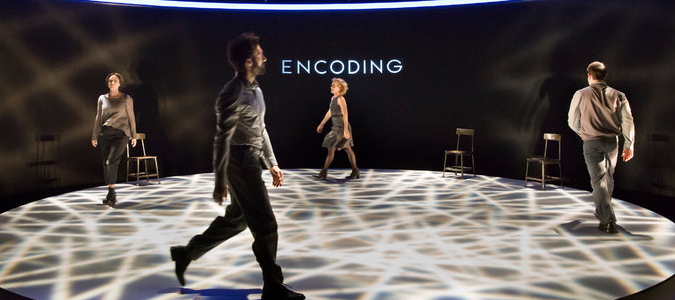


Incognito
British playwright Nick Payne excels at a subgenre we’ll call the Science Weepie. He deploys facts to frame or metaphorize the problems of his protagonists, and the collision of data and human pain is often quite affecting. Payne mines drama from deep research into climate change (If There Is I Haven’t Found It Yet) quantum theory (Constellations) and brain science (Elegy, which just opened in London). Actually, Payne’s fascination with gray matter goes back to 2014’s Incognito, a piece about neurology now handsomely produced by Manhattan Theatre Club.
On a bare stage, four actors juggle multiple roles in three interwoven storylines. There’s kindly Henry Maison (Charlie Cox), whose operation to cure seizures left him with crippling short-term–memory loss. Morgan Spector plays Thomas Harvey, a pathologist in New Jersey who performed Albert Einstein’s autopsy—then stole his brain, believing that humanity could benefit from studying the organ. Lastly, Martha Murphy (Geneva Carr) is an English neuropsychologist entering a prickly relationship with a lawyer (Heather Lind). The first two narratives are based on true stories; the fictional third artfully links their thematic motifs of neurons, broken families and slippery identity.
Doug Hughes directs a solid cast (Cox is especially brilliant as the sweetly tragic Henry) in what is an impressive acting workout—if not completely revelatory drama. For all the engaging tidbits of information, the notion that personality, love or even genius are not hard-wired into the brain so much as accidents of chemistry and sociology probably won’t blow anyone’s mind.—David Cote













